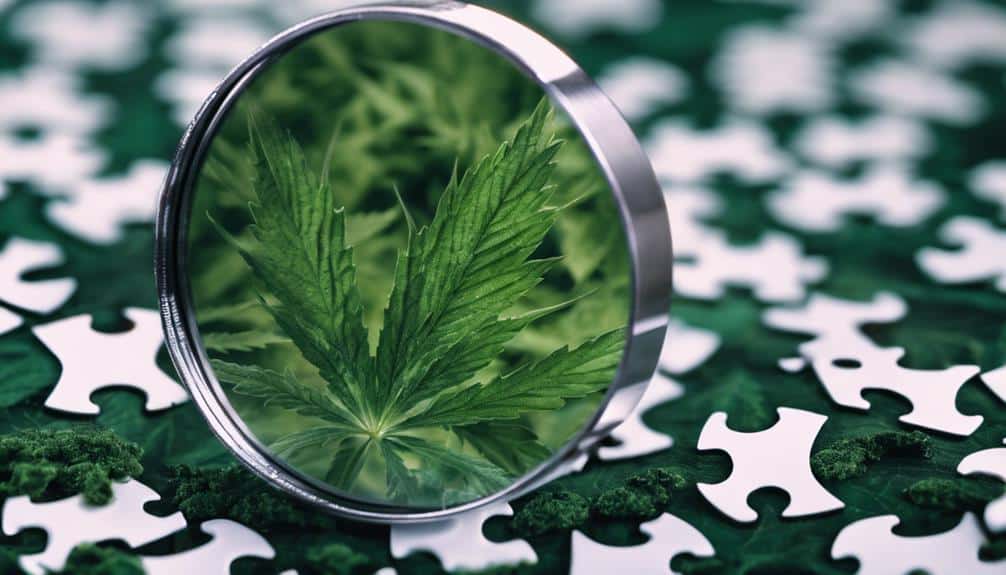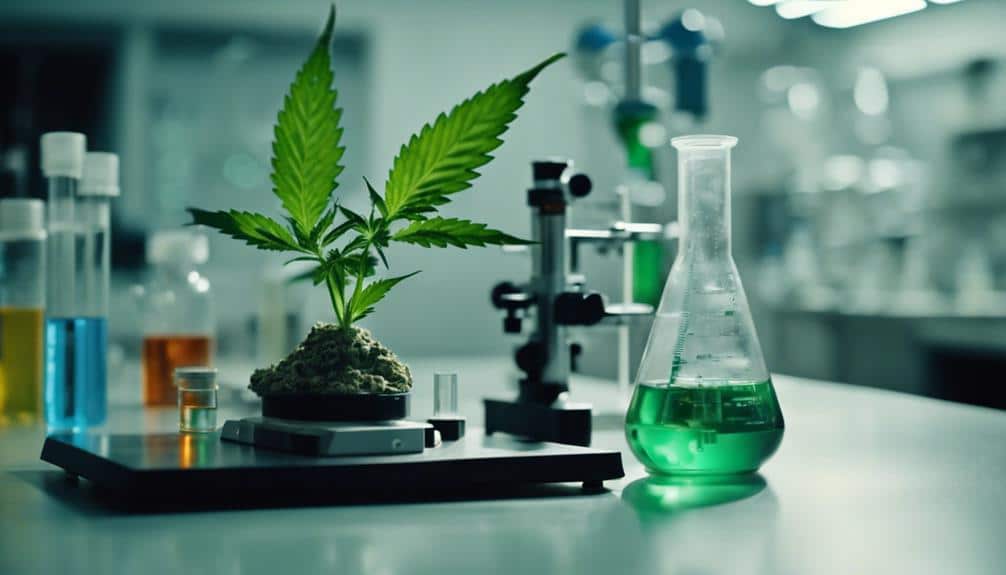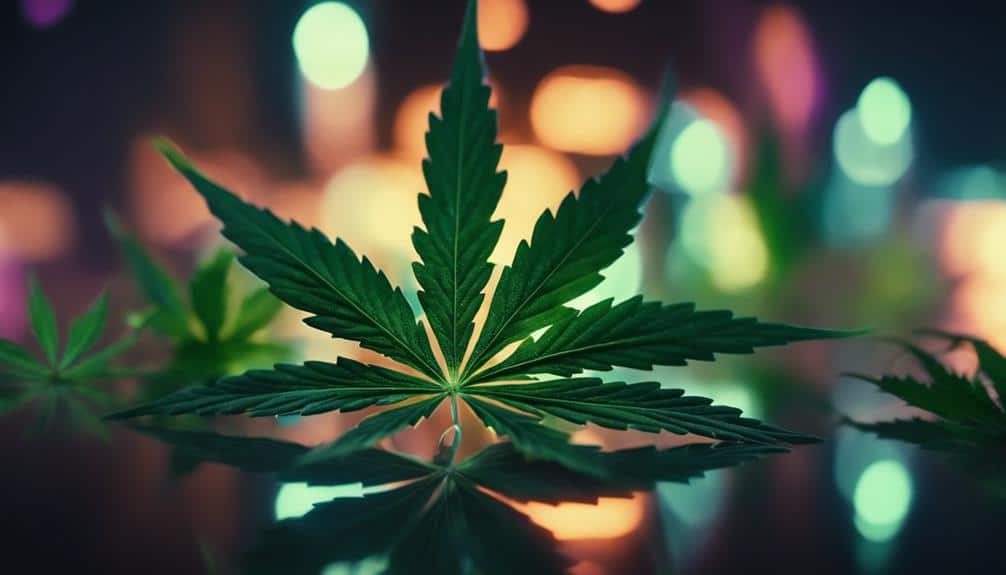You’ve heard the stories, seen the headlines, and perhaps even witnessed the reality: the opioid crisis is ravaging our communities.
Table of Contents
Now, consider this – what if cannabis, often maligned and misunderstood, could be a key player in alleviating this crisis? As counterintuitive as it may seem, emerging research indicates that this natural plant may offer a unique and effective approach to countering opioid dependence.
Intrigued? Let’s explore this together, challenging preconceptions and shedding light on this potential green relief.
Understanding Opioid Dependence

Before diving into the role of cannabis in alleviating opioid dependence, it’s crucial to grasp a clear understanding of what opioid dependence truly is and how it impacts individuals and society. Opioid dependence is a chronic disorder where your body has developed a physiological reliance on opioids. This alters your brain’s fundamental dependency mechanisms. This dependence creates a vicious cycle of needing increased doses for the same effect, leading to a higher risk of overdose.
When you try to break free from this cycle, withdrawal management becomes daunting. Withdrawal symptoms range from physical pain to psychological distress; these often drive individuals back to opioid use for relief. This cycle not only affects individuals but also has a ripple effect on society. It increases healthcare costs, fuels crime rates, and disrupts social harmony.
Research suggests that opioid dependence can be successfully managed by changing the dependence mechanisms in your brain. Various therapies and medications, including cannabis, have shown promise in this regard. By understanding the complexities of opioid dependence, you’re better equipped to serve those grappling with this issue, fostering a healthier, happier society.
The Cannabis Controversy
Despite its potential therapeutic uses, cannabis’s role in opioid dependence treatment sparks a divisive debate. This controversy-laden narrative surrounds its legality, effectiveness, and potential side effects.
Legal implications play a major role in this controversy. While some states have legalized medical cannabis, it remains a Schedule I substance at the federal level. This makes it illegal and complicates its use for treatment. This discrepancy between state and federal law can leave you as a practitioner in a tricky spot when recommending cannabis as potential relief for opioid dependency.
The social stigma attached to cannabis use adds another layer of complexity. Despite increasing acceptance of its therapeutic potential, many still view cannabis use negatively; they associate it with laziness, irresponsibility, and criminal activity. This can create barriers for patients seeking this treatment option and can also influence your perceptions and comfort level when recommending it.
Balancing the potential benefits with legal implications and social stigma makes clear that the cannabis controversy is multifaceted and complex. For those committed to serving others, understanding this debate is critical to making informed decisions about its role in opioid dependence treatment.
Cannabis Vs Opioids: The Science

Navigating through the complexities of the controversy, let’s now turn our attention to the scientific evidence comparing cannabis and opioids in the context of dependency treatment.
Unpacking the pharmacological comparisons, we find striking differences:
- Opioids bind to specific receptors, causing a rush of dopamine, which triggers addiction. Cannabis also interacts with receptors but doesn’t induce the same dopamine rush.
- Opioids have lethal overdose potential due to respiratory depression; cannabis doesn’t share this risk.
- Opioids lead to physical dependency where withdrawal symptoms are severe. Cannabis dependency, if any, is psychological with milder withdrawal symptoms.
Your therapeutic potential lies in these differences. The more benign interaction of cannabis with the body’s systems makes it a safer alternative not only for pain management but also as a stepping stone for those striving to break free from opioid addiction.
Real-world Success Stories
Countless individuals have successfully used cannabis as an effective tool for overcoming opioid addiction. These real-world examples substantiate theory with practice. Patient testimonials illuminate the effectiveness of cannabis in managing withdrawal symptoms, reducing reliance on harmful opioids, and ultimately aiding recovery journeys.
Take an anonymous veteran’s case as an example. His recovery journey was fraught with opioids prescribed for combat-related injuries. Constant use led to dependence and severe side effects. He turned to medical cannabis as a last resort and now reports significant reduction in pain and opioid usage.
Or consider Sarah’s story: she battled opioid addiction for years after a car accident. It wasn’t until she replaced opioids with cannabis that she began seeing a way out. Today, she’s not only opioid-free but also an advocate for cannabis therapy.
These real-life stories provide compelling evidence of cannabis’s potential in combating the opioid crisis. They underscore the need for further research, clinical trials, and public policy changes. Remember, these aren’t isolated examples but part of a larger trend: an increasing number of patients are turning to cannabis for relief. They’re the faces of a green revolution.
The Need for Increased Awareness

In light of these encouraging success stories, there’s a pressing need for increased awareness about the potential of cannabis in treating opioid dependence. Public Education and Awareness Campaigns are crucial tools to spread this information.
Consider the following aspects:
- Firstly, understanding how cannabis works to alleviate opioid dependence is fundamental. It’s not enough to know it works; you need to know why.
- Secondly, highlighting success stories from those who’ve benefited from cannabis treatment can be powerful motivators for those struggling with addiction.
- Thirdly, debunking myths surrounding cannabis usage is crucial. Many people are still bound by stigma which hinders them from exploring this treatment avenue.
- Fourthly, policymakers and health professionals must be educated about this potential solution. Their endorsement can pave the way for broader acceptance and utilization.
- Last but not least, we must advocate for increased research into cannabis as an alternative treatment. Greater scientific evidence will further validate its use.
Conclusion
You’ve seen the science and heard the stories; cannabis could be a powerful ally in the fight against opioid addiction. Currently, states with legalized cannabis have 25% fewer opioid deaths. Imagine the potential if we embraced this green relief nationwide. It’s high time we ramp up awareness and push for wider acceptance of cannabis as an alternative to opioids. It’s not just about changing minds – it’s about saving lives.
I’d like to invite you to learn more about this at Cannabis Docs of Delaware. Our friendly staff is ready to answer any questions you might have about cannabis’s potential role in combating opioid addiction. We believe in the power of information and would love the opportunity to share our knowledge with you. So why not drop by or give us a call? We’re happy to assist you in any way we can.

